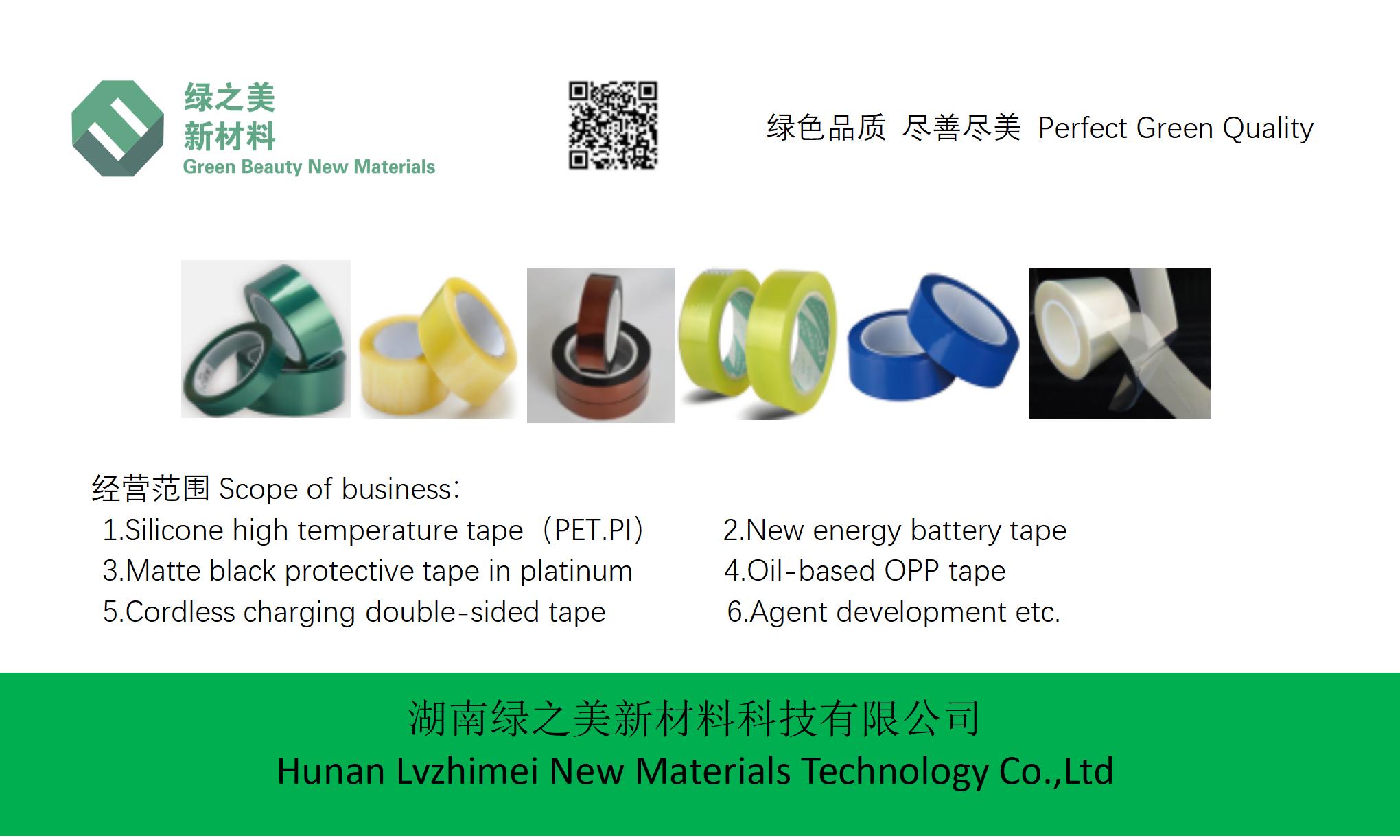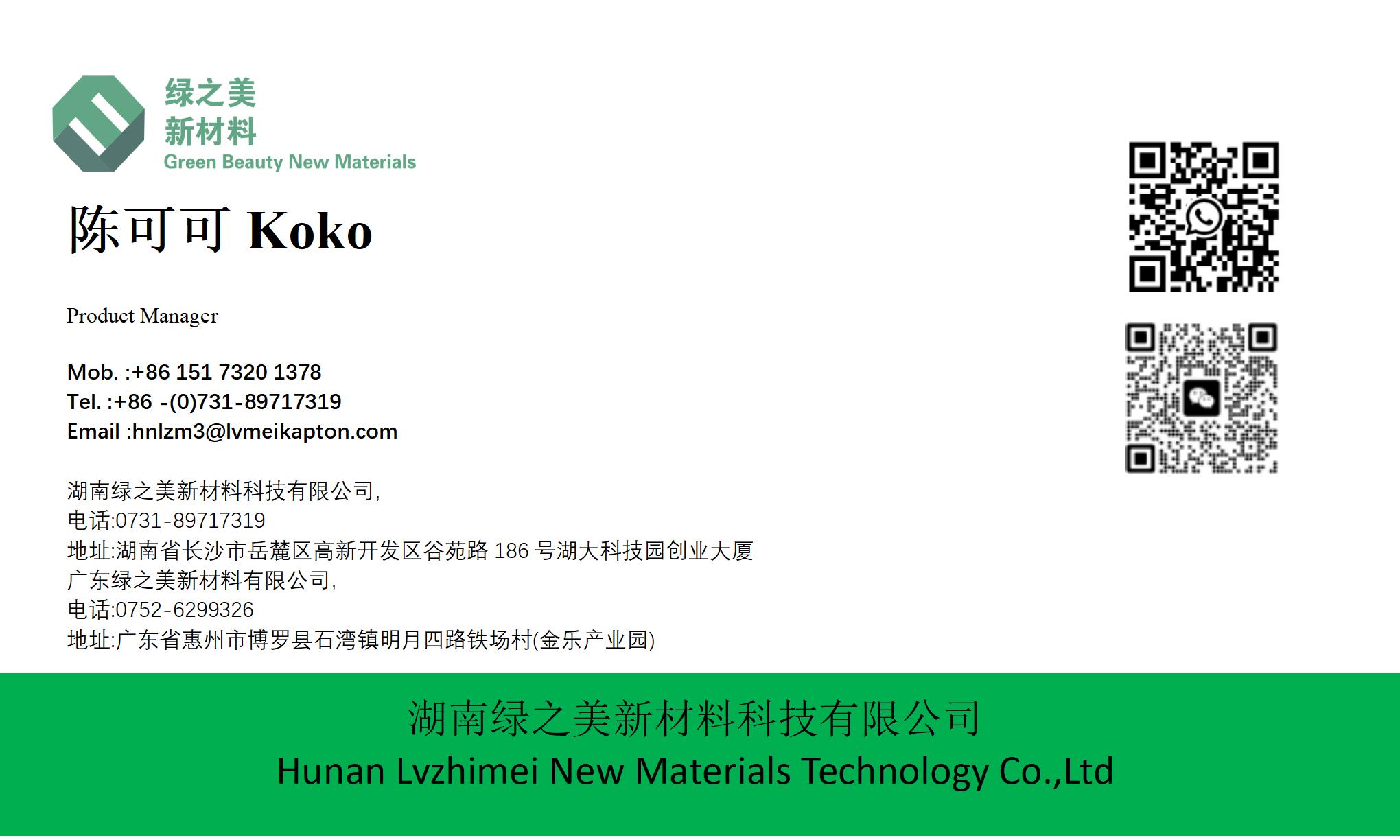hnlzm@lvmeikapton.com
+86 13787123465


Hunan Lvzhimei New Material Technology Co., Ltd.


NameDescriptionContent
What Are the Key Specifications of PI Material High Temperature Resistant 300 Tape |https://www.lvmeikapton.com/
Source:
|
Author:Koko Chan
|
Published time: 2025-05-21
|
396 Views
|
Share:
This paper delves into the technical specifications of PI (Polyimide) high-temperature tape, emphasizing its remarkable heat resistance, flame retardancy, and electrical insulation properties. By analyzing its chemical structure, performance parameters across different thicknesses, adhesive strength, and industrial reliability, the article aims to provide a comprehensive understanding of its applications and advantages.
Key Specifications of PI Material High Temperature Resistant 300 TapeAbstract: This paper delves into the technical specifications of PI (Polyimide) high-temperature tape, emphasizing its remarkable heat resistance, flame retardancy, and electrical insulation properties. By analyzing its chemical structure, performance parameters across different thicknesses, adhesive strength, and industrial reliability, the article aims to provide a comprehensive understanding of its applications and advantages.
PI material, high-temperature resistant 300 tape, lvmeikapton insulating electrical tape, adhesive PET material high-temperature tape
1. IntroductionPI high-temperature tape, also known as Kapton tape, is a composite material featuring polyimide film as the substrate and modified acrylic epoxy adhesive. Renowned for its exceptional thermal stability, chemical resistance, and electrical insulation, it is widely employed in electronics, aerospace, automotive, and industrial sectors. The "300" in its name signifies its ability to withstand temperatures up to 300°C for extended periods, making it a pivotal solution for high-temperature environments.
2. Chemical Structure and Temperature Resistance MechanismPI’s thermal resilience stems from its molecular structure. As a heterocyclic polymer containing imide groups, PI exhibits robust aromatic rings and amide linkages, which offer inherent thermal stability. The thermal decomposition temperature of PI typically exceeds 500°C, with specific formulations (e.g., those using biphenyl tetracarboxylic dianhydride and p-phenylenediamine) reaching 600°C. This stability is attributed to the high bond energy of C-N and C=O bonds, which resist degradation at extreme temperatures. Additionally, PI’s resistance to cryogenic conditions (-269°C) ensures flexibility across a broad temperature spectrum.
Table 1: Comparison of Performance Parameters for PI Tape at Different Thicknesses (0.03mm-0.12mm)
Thickness (mm) | Tensile Strength (MPa) | Dielectric Strength (kV/mm) | Max. Temp. Resistance (°C) | Adhesion Strength (N/cm) | Thermal Conductivity (W/mK) |
0.03 | 120 | 150 | 300 | 1.2 | 0.25 |
0.06 | 150 | 180 | 300 | 1.5 | 0.30 |
0.09 | 180 | 200 | 300 | 1.8 | 0.35 |
0.12 | 200 | 220 | 300 | 2.0 | 0.40 |
Note: Data sourced from ASTM D-3652 and IPC-TM-650 standards.
The table highlights that while thickness impacts mechanical and thermal conductivity properties, PI tape maintains consistent temperature resistance up to 300°C across all variants.
3. Adhesive Strength and Bonding PerformancePI tape’s adhesive layer, typically formulated with silicone or modified acrylic epoxy, ensures superior bonding to diverse surfaces. According to IPC-TM-650 testing, the tape exhibits an average adhesive strength of 585g/25mm, indicating robust adhesion to metals, ceramics, plastics, and composites. Notably, its "no-residue" property ensures clean removal post-application, preventing contamination in sensitive electronic assemblies.
4. Electrical Insulation PropertiesElectrical insulation is a cornerstone of PI tape’s utility. Key specifications include:
●
Dielectric Constant: 3.4-3.6 (low, minimizing signal interference).
●
Volume Resistivity: 10^17 Ω/cm (excellent resistance to current leakage).
●
Breakdown Voltage: ≥100 kV/mm (protects against high-voltage environments).
These properties, coupled with stable performance over wide temperature ranges (-269°C to 300°C), make PI tape ideal for transformer coil insulation, PCB protection, and high-voltage cable wrapping.
5. Flame Retardancy and Chemical ResistancePI tape meets UL 94 V-0 flame retardancy standards, self-extinguishing with minimal smoke emission. Its resistance to organic solvents (e.g., acetone, toluene), acids, and bases ensures durability in chemically aggressive environments. Notably, PI’s unique feature is its recyclability—certain grades can be hydrolyzed to recover raw materials (e.g., dianhydrides and diamines), reducing waste.
6. Industrial Reliability VerificationReal-world applications validate PI tape’s performance:
●
Electronics Manufacturing: In wave soldering processes, PI tape shields PCB gold fingers from molten solder, maintaining connection integrity.
●
Automotive Engine Bay: It withstands temperatures exceeding 200°C, securing wiring harnesses and insulating battery connectors.
●
Aerospace: As a lightweight, high-temperature insulator for avionic cables, it passes rigorous vibration and thermal cycling tests.
●
3D Printing: PI tape’s smooth surface enhances print bed adhesion for high-temperature polymers (e.g., PEEK).
7. Technical Specifications Summary
Property | Specification |
Base Material | Polyimide (PI) film |
Thickness Range | 0.03-0.12 mm |
Max. Service Temp. | 300°C continuous, 260°C for short-term processes |
Adhesion Strength | 1.2-2.0 N/cm |
Dielectric Strength | ≥100 kV/mm |
Flame Rating | UL 94 V-0 |
Chemical Resistance | Resistant to acids, alkalis, solvents, oils |
Shelf Life | ≥2 years (stored at ≤30°C, ≤60% RH) |
8. ConclusionPI high-temperature tape’s synergy of thermal stability, electrical insulation, and chemical resistance positions it as an indispensable material in modern industries. Its consistent performance across thickness variants, coupled with strong adhesive properties and flame retardancy, ensures reliability in demanding applications. As technology advances, PI tape’s role in emerging fields like renewable energy and advanced electronics is expected to expand further.


Hunan Lvzhimei New Material Technology Co., Ltd.
Quick Links
Product Categories
© 2024 Hunan Lvzhimei New Material Technology Co., Ltd.All Rights Reserved. Designed by Erge
0731 - 89717319
hnlzm@lvmeikapton.com
+86 13787123465
Room 502, Chuangye Building, No186, Guyuan Road, High-Tech District, Changsha, Hunan, China
CONTACT









